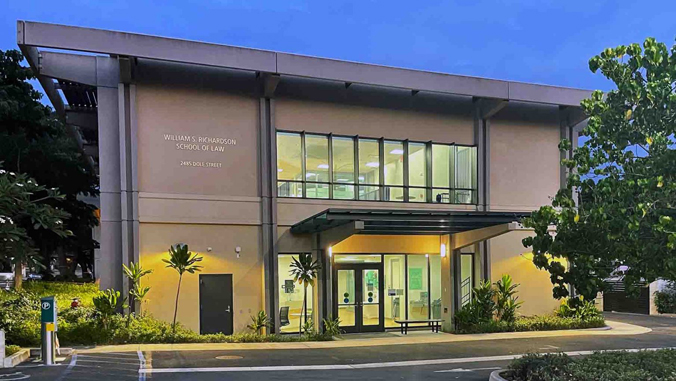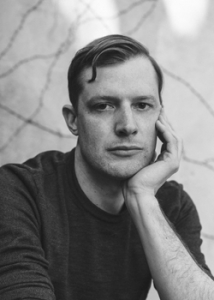
Pressing legal issues in climate resilience, immigration, health and international relations will be discussed at the University of Hawaiʻi at Mānoa William S. Richardson School of Law’s Asian-Pacific Law and Policy Journal (APLPJ) 16th symposium.
The symposium, “Unpacking the Compacts of Free Association,” will run March 23–26. Find more information and register online.


Panel discussions will explore the impact of the Compacts of Free Association (COFA) for the Pacific region and beyond. COFA defines the relationship between the U.S. and the Federated States of Micronesia, the Republic of the Marshall Islands and the Republic of Palau—collectively, the Freely Associated States.
APLPJ Editor-in-Chief Keoni Wiliams said, “We have been told by practitioners and subject matter experts that this is the first time in recent history that a symposium of this scale has been convened to discuss the Compacts of Free Association in an interdisciplinary way.”
Programming will include film screenings and panel discussions, welcoming remarks by UH law school Dean Camille Nelson, and a keynote by council member and vice chair of Honolulu City Council Esther Kiaʻāina.
The event kicks off with a screening of feature film Island Soldier, and a discussion with the film’s director, Nathan Fitch. The documentary follows Micronesian soldiers serving in the U.S. military as they journey from remote islands to the front lines of war in Afghanistan.
Panelists from across Pacific region
The symposium is organized by APLPJ and its team of 17 students from the UH law school.
APLPJ faculty advisor and Professor Mark Levin noted the impact of the journal at the UH law school. “Richardson’s APLPJ is now in its 24th year of publication, having provided learning and leadership opportunities for hundreds of our students, scholarship outlets for several hundred authors, and new insights and understandings for countless readers around the world,” he said.
The three days of programming include participating faculty from UH Mānoa, the UH law school, community leaders, and multiple organizations, such as We Are Oceania, Chuuk Youth Council and the Micronesian Health Advisory Coalition. Panelists include those representing Hawaiʻi and across the Pacific region—including Guam, Palau and Micronesia.
“The speakers and moderators we have curated are well-established in their respective fields and this would be the first time they are curated together in one forum,” said Williams.

